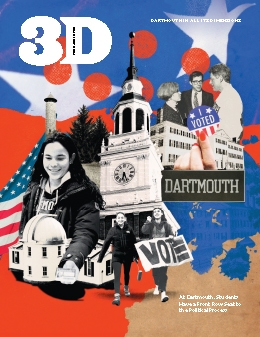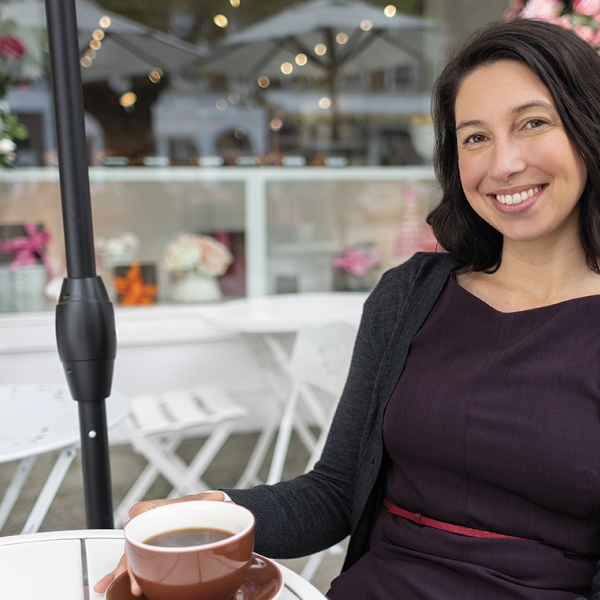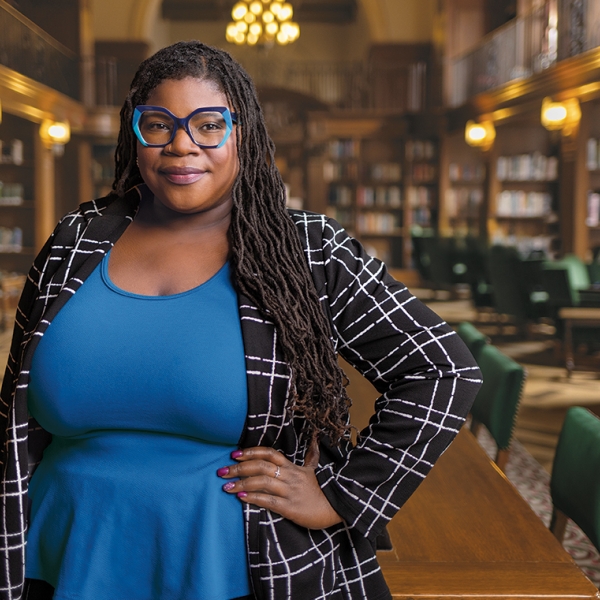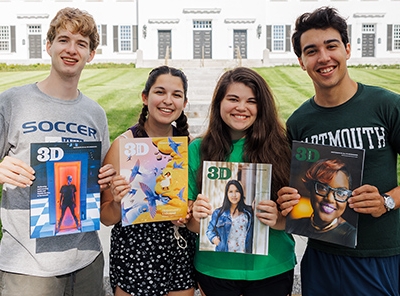Herbert Chang first visited Dartmouth's campus when he was a prospective undergraduate student from Taiwan. "I remember thinking, 'Wow, this seems like a place where community really matters,'" he says.
The newly-minted Dartmouth faculty member was recently named to the Forbes 30 Under 30 in Science list for 2024. His primary research interests lie in using computational and social scientific approaches to explain complex human behaviors. "My time at Dartmouth was spent exploring the liberal arts. It was exciting to work with both the left and right sides of my brain."
Professor Chang graduated from Dartmouth in 2018 with degrees in mathematics, creative writing, and quantitative social science, an interdisciplinary program that combines methodological training with social science. His interests spanned far beyond his chosen concentrations, though. As a Dartmouth student, Professor Chang collaborated with former music professor Spencer Topel to create Cicada, an award-winning electroacoustic instrument. He also wrote a novel about artificial intelligence and human creativity for his senior thesis in creative writing.
After graduating from Dartmouth, Professor Chang brought his interests overseas to Scotland, where he received a master's degree in artificial intelligence. A year later, he moved to Los Angeles to pursue a PhD in communication. Soon after the pandemic hit, he returned to Taiwan to conduct research on the Taiwanese presidential election and the U.S. presidential elections.
While much in the technological world has changed, Professor Chang's research interests have not. "I study how algorithms and online bots spread information on social media," he says. "This includes misinformation about topics like COVID-19 or elections, but it can include good information as well. Bots aren't necessarily bad; there can also be good bots. My research focuses on investigating the ethical and responsible uses of these technologies. How are they impacting society at large, especially during political events?"
Professor Chang attributes his teaching style to the hands-on education he received at Dartmouth. In his Modern Statistical Computing course, his students practice live coding through in-class workshops. "Writing the code out line by line, instead of copying and pasting, helps students think through the code with me." And, he adds, "It's really nice to be working alongside former mentors who are now colleagues."
Professor Chang even applies his quantitative brain to one of his favorite hobbies—cooking. "Let's say I'm making five or six dishes for a party. I think about the optimal way of organizing them so that they're all finished at the same time. I guess that would be the computer scientist in me," he laughs.
Photograph by Don Hamerman, pictured inside Dartmouth Hall




